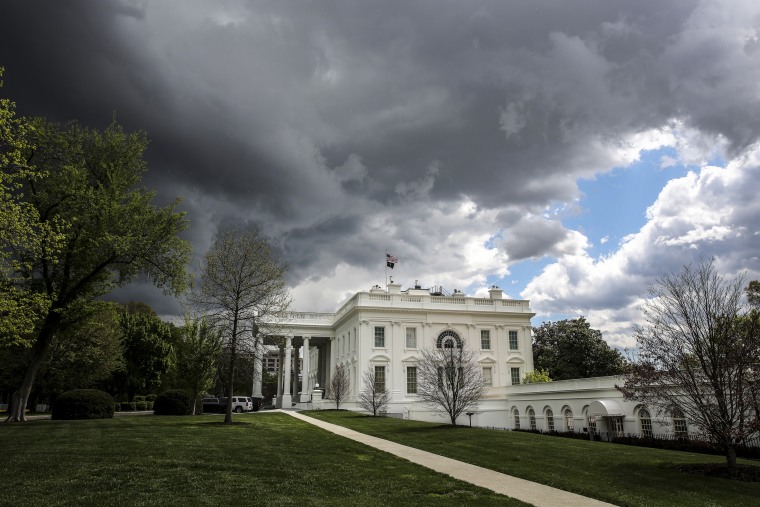It's been nearly two weeks since the New York Times first reported on a stunning story: according to U.S. intelligence, while peace talks were underway to end the long-running conflict in Afghanistan, a Russian military intelligence unit "offered bounties to Taliban-linked militants for killing coalition forces in Afghanistan -- including targeting American troops."
Soon after, most of the nation's leading news agencies confirmed the story: U.S. intelligence agencies have reason to believe Vladimir Putin's government offered financial rewards to those who killed American servicemen and women.
As the controversy unfolded, there were competing accounts on the scope of the intelligence, but nevertheless, the White House is now prepared to take action -- against those responsible for bringing the story to light. Politico reported this morning:
The Trump administration has opened an internal investigation to try to uncover who leaked intelligence about Russians paying the Taliban bounties to kill American soldiers. The administration maintains the story is overcooked and the leaks cherry-picked despite a steady stream of follow-ups from media outlets across the globe. The administration has interviewed people with access to the intelligence, and believes it has narrowed down the universe of suspects to fewer than 10 people.
As the report noted, there have been similar probes along these lines -- remember the hunt for the anonymous author of this op-ed? -- that didn't amount to much. That said, Politico added that Team Trump "seems a bit more worked up about these leaks, due to the highly classified nature of the intelligence."
There are a few relevant angles to this. Right off the bat, it's worth emphasizing by Donald Trump's reasoning, there are no leakers to uncover because, as the president put it last week, the entire story was "made up" by journalists as part of an elaborate conspiracy to "damage" his re-election campaign and his party. The "secret source" behind the reporting, Trump added, "probably does not even exist, just like the story itself." The president concluded that the entire matter is "just another hoax."
If Trump were right, then why would the White House seek out a leaker who doesn't exist? How could officials "narrow down the universe of suspects to fewer than 10 people" if the underlying claim was manufactured by nefarious reporters? It would seem the investigation itself debunks the president's claims.
What's more, while it's not surprising that the White House would want to identify those responsible for sharing sensitive information with the press, Trump bears some responsibility for the circumstances. As Daniel Goldman, a former federal prosecutor and a former MSNBC legal analyst, explained, "The consequences of attacking the Ukraine whistleblower: concerned officials go to the media instead of proper channels. When you take away the proper route through vindictive retribution, you cannot then complain about leaks."
But even putting these relevant details aside, let's not miss the forest for the trees: confronted with allegations that Moscow put bounties on the heads of American troops, the White House is eager, not to punish Russia, but to punish U.S. officials who helped expose the controversy.
Indeed, the Washington Post reported over the holiday weekend, "In the days since the reports became public, Trump has declined to criticize Putin or Russia, and senior administration officials say the White House isn’t planning a response.... For Trump’s critics, the silence on Putin is part of a disconcerting trend."
Why yes, actually, it is.

